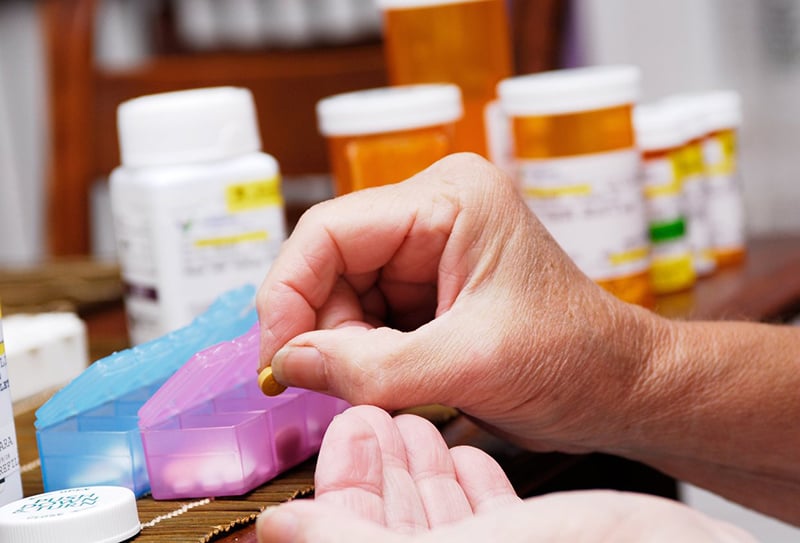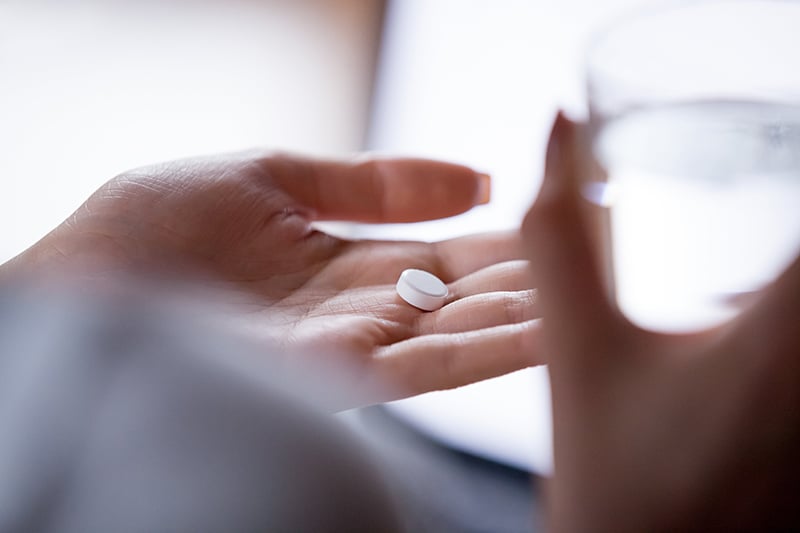Top 5 Things to Avoid When Taking Medications

There are many things to avoid when taking medications, especially when you are taking medications long term. Medications are affected by food, water, stress, exercise, and much more. By following these five tips below, you will be more likely to gain the benefit of your medications and avoid any potential side effects that you may be experiencing.
Empty Stomach
Many medications need to be either taken with food or taken without food. If a medication needs to be taken with food, this is because without the food in your stomach, the medication will irritate the lining of your gut. When food is ingested into the stomach, the stomach begins to release gastric secretions that ultimately change the pH (acid or basic) of the stomach.
When food is in the stomach, the pH is typically 4-5, and when there is no food in the stomach or it’s empty, the pH ranges between 1-3. These slight changes in pH ultimately affect how the medication will absorb, break down, and stay active. That is why it is very important to follow the medication’s instructions and follow a regimen of when to take your medications.
Long Term Direct Sun Exposure
Giving the body natural Vitamin D in moderation is very important for the body’s overall function. However, over exposure can be detrimental to one’s health, making it one of the essential things to avoid when taking medication.
Photosensitivity and sun sensitivity are common effects of many medications. This can mean that one’s skin is more prone to be burned quickly and severely. It can also lead to reduced ability to sweat, rash development, and overheating.
- Antibiotics: In general, almost all antibiotics increase the risk of photosensitivity and phototoxic reactions, resulting in severe sunburns and possible rashes.
- NSAIDS: Risk of phototoxicity, the skin's response resembles an exaggerated sunburn.
- Topical Medications: Significant sun exposure can amplify the effects of transdermal patches (Fentanyl, Clonidine, etc.). If you are wearing a patch, it is important to stay out of direct heat or wear clothe covering the patch.
Over- or Under-Hydrating

Drinking too much water and failing to drink enough water are both things to avoid when taking medications. It is wise to take every medication with a full glass of water, but you still have to be wary and vigilant.
Medications rely on water to be broken down and absorbed into the body. If the patient is dehydrated, then the mediation may sit in the body for longer periods of time due to decreased urination. On the other hand, if someone is over-hydrating and urinating often, then it is not giving the medication time to sit in the body because it gets flushed out right away. Both situations create a disbalance and can alter the effects of the medication.
Starting New Medications, OTC, or Herbals Before Consulting Your Physician
Avoid starting any new medication, OTC (over the counter), or herbal remedy when concurrently taking maintenance medications without consulting a health care professional first. OTC and herbal products are often initiated without any consultation; however, this increases the risk of possible drug interactions and side effects associated with the combination of medications.
Discontinuing, Changing, or Increasing Doses Without Consultation
If you are experiencing side effects or adverse effects to a medication, then it is important to consult your health care provider before making any changes or stopping the medication. Certain medications should not be stopped immediately and can be detrimental to one’s health if not tapered off. On the other hand, changing or increasing one’s dose can also be very dangerous without proper tapering.
Do not be afraid to tell your health care provider what is and isn't working for you. This will allow your health care team to know exactly what you are taking and allow your team to provide better overall guidance.
The pharmacists here at IWP are available to answer any questions and concerns regarding your medications. We can assist you in figuring out what things to avoid when taking your workers' comp medication, as well.
Other Posts You Might Be Interested In
Subscribe to email updates
Stay up-to-date on what's happening at this blog and get additional content about the benefits of subscribing.

